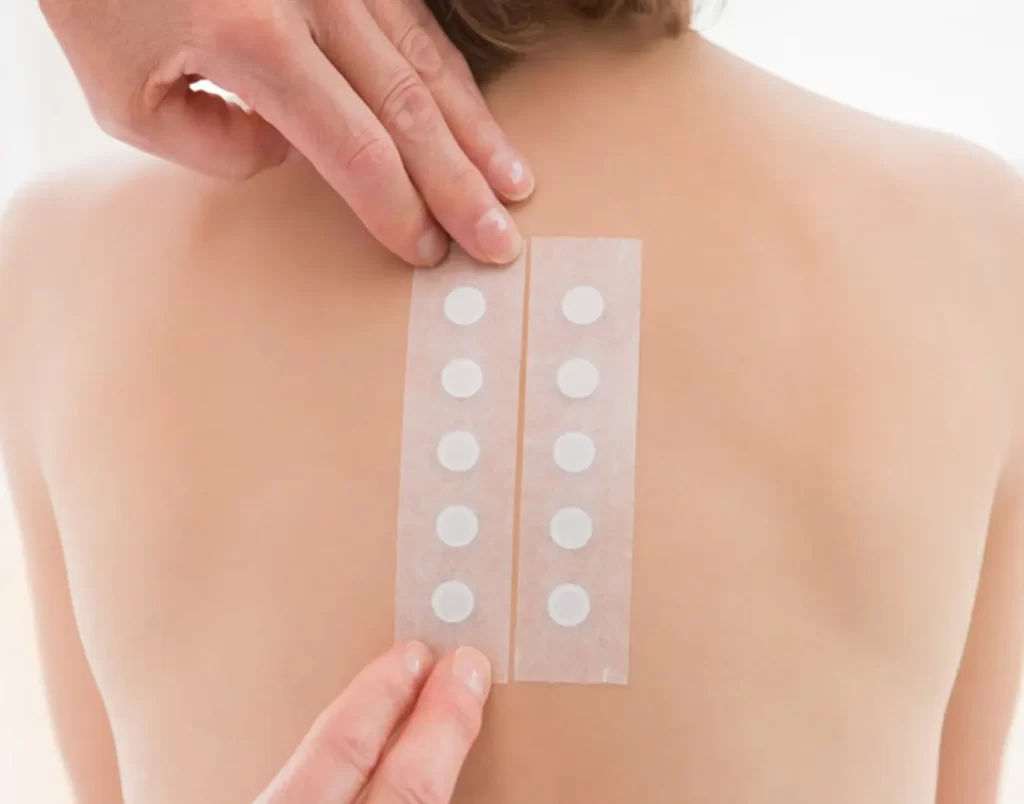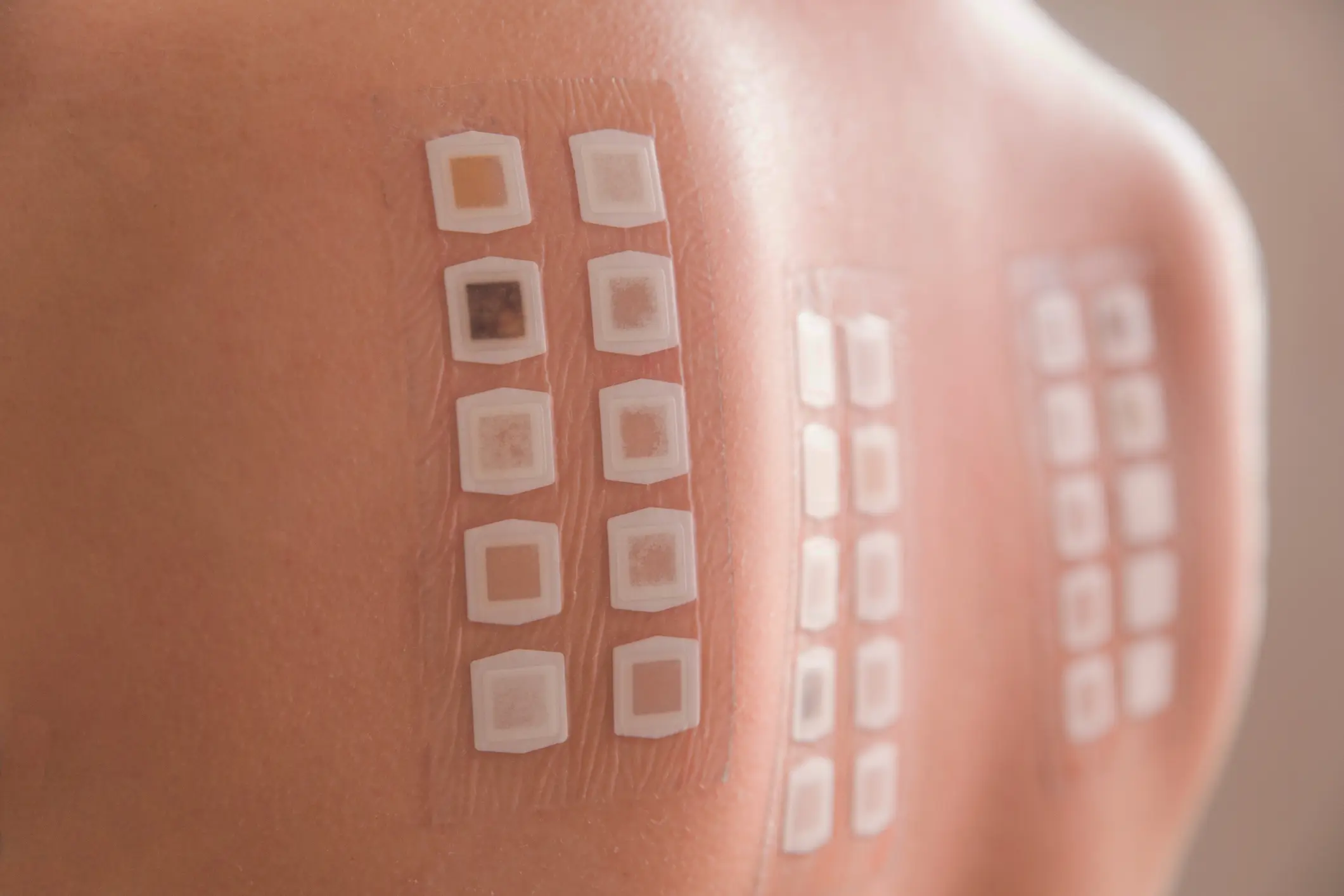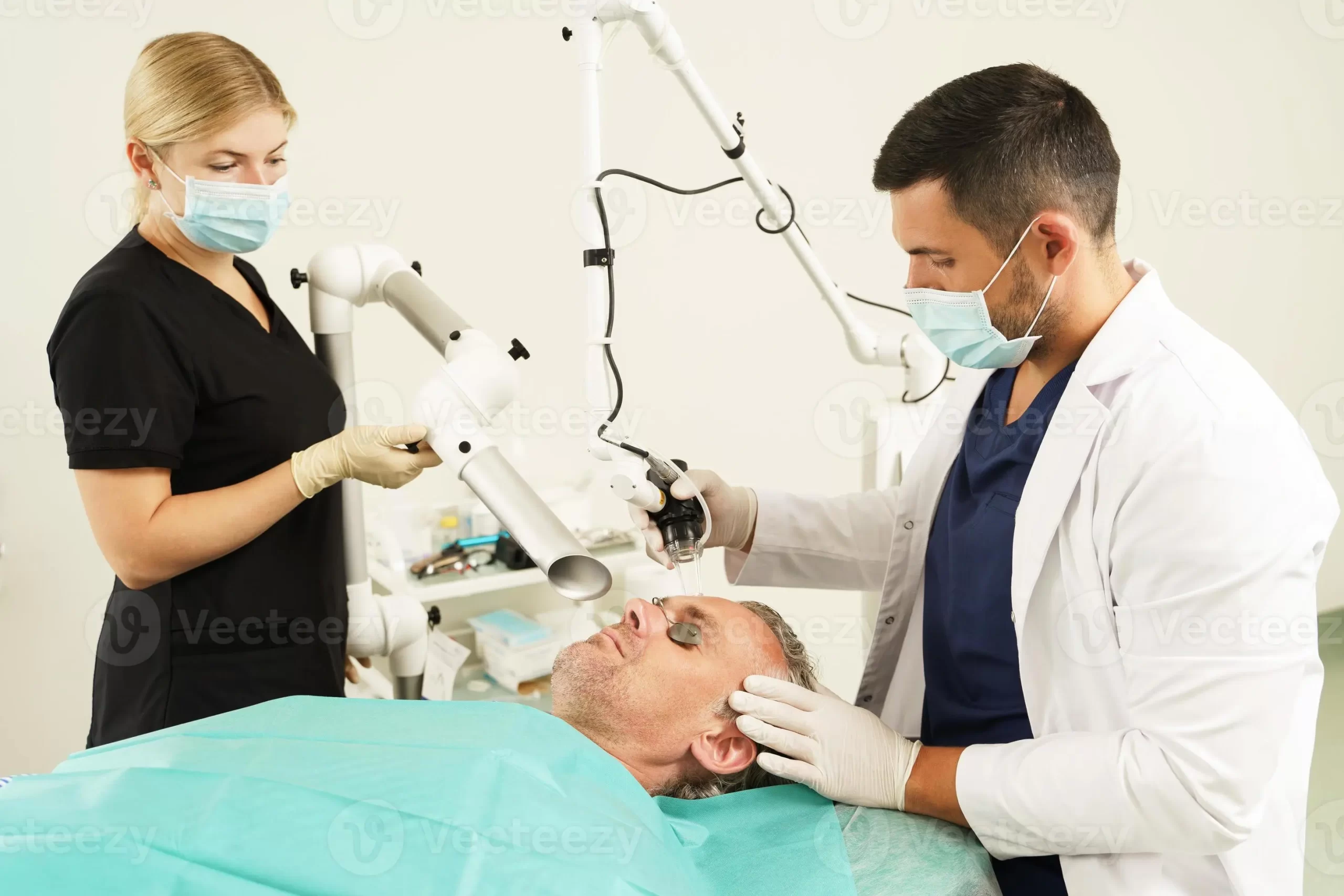Yes, dermatologists perform allergy testing, especially when skin reactions appear. They use patch testing in dermatology to find out which substances cause redness, itching, or rashes. When patients ask, “Do dermatologists perform allergy testing?” The answer depends on the type of allergy.
Dermatologists typically treat allergic contact dermatitis and other skin conditions, while allergists specialize in treating food or breathing allergies. These tests help identify potential allergens and guide treatment to stop irritation and prevent future flare-ups.
DermOnDemand, led by board-certified dermatologist Dr. Hannah Kopelman, offers fast and discreet access to expert skin diagnosis and treatment.
At DermOnDemand, Dr Kopelman and her team help patients identify contact allergies, interpret results, and create treatment plans within 24 hours through a secure online process.
Key Takeaways
- Dermatologists can perform allergy testing, particularly for skin reactions such as rashes or allergic contact dermatitis, using methods like patch testing.
- A patch test for contact dermatitis helps identify potential allergens by applying small patches to the skin and observing reactions after about 48 hours.
- Patients with skin-related symptoms should consult a dermatologist first. At the same time, those with food or breathing issues may be referred to an allergist for additional tests, including a skin prick test.
- The costs for patch tests typically range between $150 and $400, and many insurance plans cover medically necessary skin tests.
- Through DermOnDemand, led by Dr. Hannah Kopelman, patients can complete online evaluations, receive expert test recommendations, and access treatment plans without needing to visit a clinic.
When Dermatologists Perform Allergy Tests
Common Skin Conditions Linked to Allergies
Dermatologists perform allergy tests when a potential allergen may cause rashes or irritation. These reactions often happen after contact with metals, perfumes, or preservatives. Testing shows if the immune system is reacting to an irritant or a true allergy.
Dr. Hannah Kopelman and her team at DermOnDemand specialize in precision care for conditions like allergic contact dermatitis and eczema treatment, helping patients restore clear, healthy skin through expert-guided care.
For example, a watchband with nickel can cause itching or redness. Identifying these triggers enables dermatologists to diagnose and treat skin problems accurately.
When to See a Dermatologist or Get an Allergist Referral
If your rash is limited to your skin, a dermatologist is usually the best option. If you also have breathing or food-related symptoms, your dermatologist might refer you to an allergist.
The goal is a precise diagnosis tailored to the affected area and reaction type. If you’re looking for a recommended dermatologist, DermOnDemand connects patients with certified specialists who can identify allergy triggers and provide quick, personalized care.

How Dermatologists Test for Allergies
Dermatologists use different skin tests to find contact allergies. The most common are patch tests, which detect delayed allergic reactions that appear after about 48 hours. Other tests include the skin prick test or scratch test, which show faster reactions.
Patch Testing in Dermatology
Patch testing in dermatology assesses whether specific ingredients or materials irritate. The dermatologist places small patches with a small amount of each allergen on your back. These stay in place for two days before being removed.
Patch Test for Contact Dermatitis
A patch test for contact dermatitis is used to identify delayed-type contact allergies. After 48 hours, the patches are removed, and the skin is checked for signs of redness, swelling, or any adverse reactions. This indicates which items are causing symptoms such as itching or flaking.
What Allergens Are Tested
Tests including metals, preservatives, or fragrances are common. These contain small amounts of allergens commonly found in products such as soap, jewelry, or makeup. The dermatologist reviews how your skin reacts to different amounts of the allergen to identify the exact trigger.
Understanding Your Results
Once the test results are ready, the dermatologist explains the findings to the patient. Mild redness may mean sensitivity, while stronger reactions show a real allergy. Your dermatologist will advise you on which items to avoid and may prescribe specific creams or treatments.
Cost and Insurance for Skin Allergy Testing
Average Testing Costs
The price of allergy tests depends on the number of allergens tested. In many offices, patch tests cost between $150 and $400. DermOnDemand offers clear pricing and certified specialists to review results.
Does Insurance Cover Patch Testing?
Some insurance plans cover tests, including patch or skin tests, for the diagnosis of contact dermatitis. Coverage depends on your plan and provider. If you’re unsure whether dermatologists are covered by insurance, check with your provider to confirm coverage for allergy testing and related treatments.
Choosing the Right Specialist

When Dermatologists Refer to Allergists
Dermatologists treat skin allergies, while allergists treat reactions to foods, pollen, and other allergens. If you experience symptoms such as sneezing or congestion, your dermatologist may recommend a referral to an allergist for further allergy testing. This teamwork helps you fully understand your immune system response.
What to Expect During Your Visit
What Happens During Your Patch Test
During your appointment, small patches containing each allergen are placed on your back. Avoid showering or heavy activity for two days. After 48 hours, the patches are removed, and the skin is checked for positive reactions that confirm sensitivity.
When Testing Is Recommended
Testing helps if you have rashes or irritation that don’t respond to basic skincare. Skin tests help determine which everyday items may exacerbate your skin condition. With this knowledge, your dermatologist can suggest safe products and effective treatments.
Online Consultation and Follow-Up
At DermOnDemand, patients fill out a secure online form. Dr. Kopelman reviews your photos and symptoms, recommends suitable tests, including patch testing, and develops a customized care plan. This process helps diagnose and treat allergies quickly and privately.
Expert Advice
Preparing for Your Allergy Test
Avoid using steroid creams on your back for several days before your test. Bring your skincare, makeup, or cleaning products so your dermatologist can look for possible allergens during the patch test for contact dermatitis.
Why Professional Diagnosis Matters
Skin allergies can resemble other conditions, such as eczema or infections. A professional examination ensures a correct diagnosis and treatment, helping you avoid incorrect medications or delays in care. Dr. Hannah Kopelman reminds patients that expert testing helps recovery progress faster and more safely.
Book Your Private Dermatology Consultation
If you suspect allergic contact dermatitis, book a consultation with DermOnDemand. You’ll gain quick, private access to a certified dermatologist who can identify your triggers and create a personalized treatment plan tailored to your skin condition.








